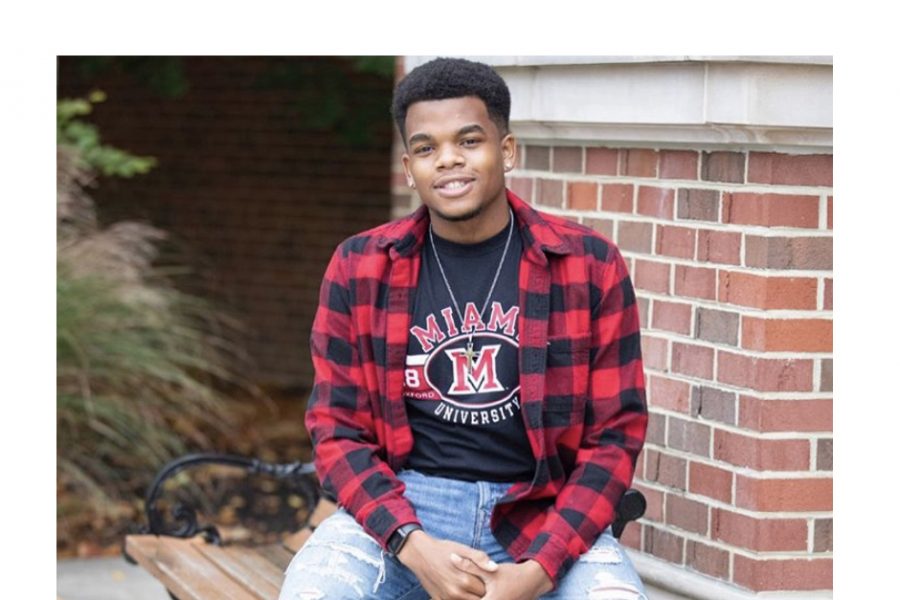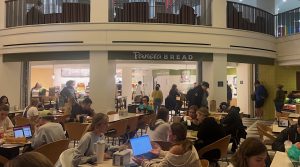Miami junior plans to run for student body president
Photo provided by Miami University
Miami junior Cameron Bracely hopes to become Miami University’s next student body president.
December 4, 2020
Many students just want some relaxation after a year as tumultuous as 2020, but Cameron Bracely is preparing for an election.
Bracely, a junior at Miami University, plans to run for student body president in the spring. He is already a senator in Miami’s Associated Student Government (ASG) and has a passion for politics outside of school as well.
Student body president is a position that every undergraduate is entitled to vote for, but many don’t understand. Bracely said he wants to change that.
“I think I could make it fun to be interested in ASG and the work we do for the student body,” Bracely said.
The current student body president is Jannie Kamara. She explained that the main function of the office is to act as a voice on behalf of all students and work closely with the school’s administration.
Bracely said he thinks his wide range of on-campus and off-campus experience would help him excel at the position. He has been a resident assistant in Emerson Hall the past two years and has also been involved with Miami’s Bridges Program, which connects high-achieving high school students from under-represented groups to Miami. He is a public administration major and started an internship this semester with Hamilton County’s budget department.
Bracely said balancing all of his responsibilities has not been difficult. “COVID-19 has actually made it easier on me because everyone’s being more lenient this semester.”
Nathaniel Ike, a fellow ASG senator, worked with Bracely on an initiative he helped put together. “We went around campus marking any of the lights that were out or dim to get the administration to actually come out and fix them for campus safety,” Ike said.
Bracely said his work as a senator and as an RA will help him effectively communicate with the administration about what students need. “We take students’ advice and try to implement it,” said Bracely. “I know about students’ needs coming into college and I know what they want to get out of going to college.”
His career with ASG began on an impulse to run for senator. He actually ran twice because he lost his first race. “The first time I was running against one other person and the second time I won against 11 other people. God just wanted me to try a little bit harder,” he said.
Bracely has always had a connection with God. With the many responsibilities he has, he finds time to de-stress with his participation in the Miami University Gospel Singers.
When describing his campaign recently, he seemed nervous. He said he fears being met with the same failure he had in his first campaign for senator.
He said to combat students’ apathy, he would try to make the students more involved and be more engaging.
Kamara agreed that the next president’s campaign needs to be engaged with the student body. She said the campaign should “help people understand why issues affect them.”
Voting usually takes place around mid-March or early April. The new president and cabinet then take over in the summer and work throughout the school year until spring graduation.
Ike said that one way to improve awareness would be for ASG to be more active in reaching out to students through social media. Kamara echoed this statement when talking about advice she has for the next president.
Some other advice Kamara offered was to go with your gut instinct. She explained, “Always investigate. If you think something’s up, then something is probably up.” She also talked about how hard it is to work with the administration sometimes. “Those who have power will dodge things so be prepared to constantly push.”
Kamara applauded Bracely and anyone else who has thought about running. “Maintaining a positive partnership between student and faculty is so important now more than ever,” she said.
Bracely’s overall goals for his hopeful presidential term are to make Miami more inclusive and continue Kamara’s work in representing and supporting students.
“Students need more say with the administration because we pay so much money to go here,” he said. “We need to be less divided and break stereotypes that people have about the school.”















